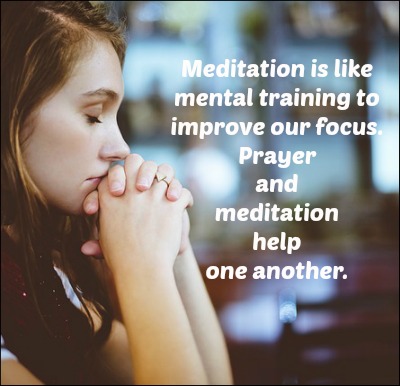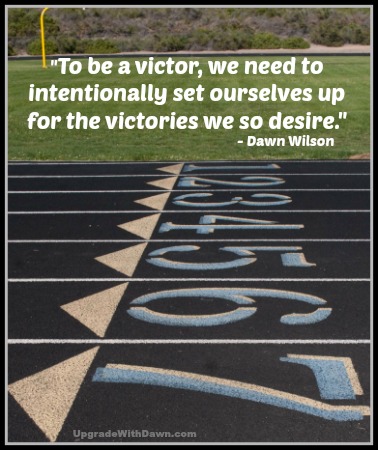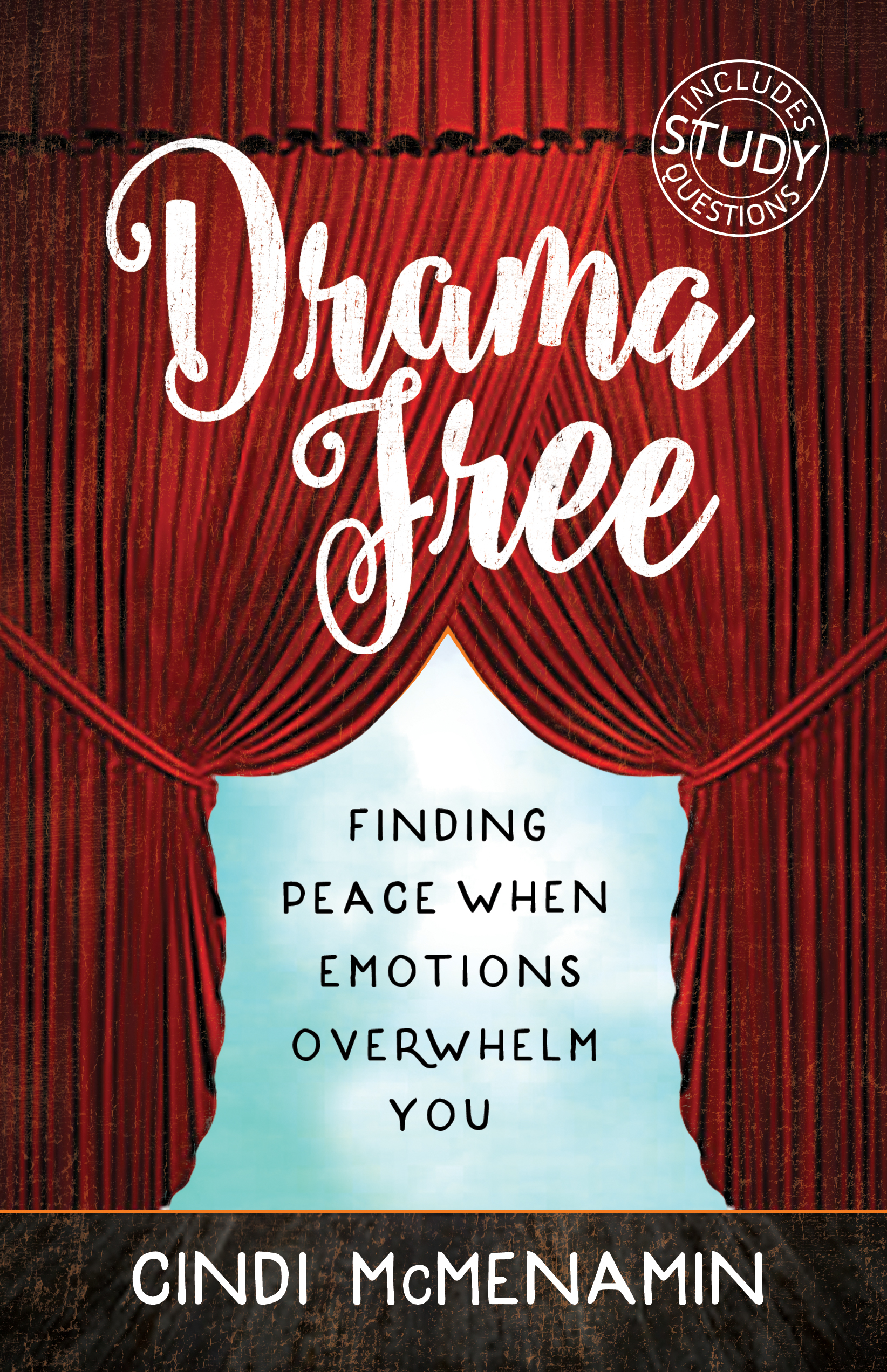Expand Your Attention Span for Spiritual Growth
 Got attention span deficit? In this Spiritual Growth UPGRADE, Dawn encourages us to expand our attention span so we can grow in our journey with the Lord.
Got attention span deficit? In this Spiritual Growth UPGRADE, Dawn encourages us to expand our attention span so we can grow in our journey with the Lord.
According to a Time magazine report (2014) quoting Chartbeat, a data analytics company, one in three visitors to a webpage spends less than 15 seconds reading an article they land on.
A 2016 article in The New York Times noted a survey of Canadian media consumption by Microsoft that concluded the average attention span had fallen to only eight seconds.
(Apparently goldfish have an attention span of 9 seconds, but I'm not sure how you'd prove that's true.)
Human brains wander and are “in the moment” for just over half of our waking hours according to a study from Harvard University. The rest of the time we “zone out.”
I've watched the controversy over the rise of fidget spinners for children with poor attention spans; but attention isn't just a kids' issue.
I've joked that I have a shorter attention span than fruit flies—sort of like this common fly hopping on and off my husband's cell phone! But it's really not a laughing matter.
Part of the problem: we flit between television, radio, Facebook, Twitter, Instagram, Pinterest, our iPods and iPads and email. We’re distracted and incredibly busy and can’t seem to concentrate on one thing for long.
This problem affects Christians when it comes to spiritual disciplines and lifestyle.
- We find time to surf the Internet, but fail to swim in the cleansing streams of our Bibles.
- We eagerly chat on social media, but seldom get in deep conversations with our Heavenly Father.
- We can quote lines from favorite flicks, but somehow can’t memorize scripture.
- We spend hours looking for bargains in the mall, but miss seeing the desperate homeless woman outside.
As I write this, I am deeply convicted.
I am caught up in the busyness of modern society, the craziness of the constant media pull, and the emptiness of life when I forget God.
I need a major adjustment in my attention span, my use of time and the priorities I embrace. Do you?
I'm going to leave it to those much wiser to solve the brain/attention issue, but here are 5 ways I think we can expand our shrinking attention span to encourage spiritual growth.
1. Be Intentional in Seeking God.
Intentionality requires us to slow down and think so we can act wisely. In this crazy world, to come apart before we fall apart.
Redeeming or making the best use of time, as Paul encouraged, isn’t always about cramming more into our lives.
I like what Joan Webb, author of The Intentional Woman, says about this. “Speeding through life is not a productive way to redeem the time,” she says. “A better way to redeem life’s opportunities is to slow down, relax, and enjoy myself, others and God.”
Especially God.
Many Christians believe (see The Westminster Shorter Catechism, question #1) our chief purpose for existence is to enjoy God and glorify Him forever. We need to be intentional and seek Him.
It won’t just “happen” like an instant message flitting across your cell phone.
2. Meditate on Scripture.
 Meditation is like mental training to improve our focus. It’s what sociologists call “mindfulness.”
Meditation is like mental training to improve our focus. It’s what sociologists call “mindfulness.”
“God designed us with the capacity to pause and ponder,” David Mathis wrote. “He means for us to not just hear Him, but to reflect on what He says.”
As a Christian discipline, meditation isn’t emptying the mind—as modern non-Christian teachers suggest—but rather filling the mind with real biblical truth and then “chewing” on it for a while. It is allowing the Word of God to “dwell in you richly.”
I have found meditation connected to prayer, Bible study and memorization. They all help one another.
3. Incorporate Exercise into your Day.
I’ve heard some people say “bodily exercise profits little,” quoting scripture, but a better translation of 1 Timothy 4:8 is “bodily training is of some value….” We don’t want to ignore our body’s need for exercise. And God designed us for a body-mind connection.
A study from the University of Illinois actually found physical activity can increase cognitive control and attention span. So why not get creative and use exercise time to the glory of God?
- Prayer walk around your neighborhood.
- Walk on a beach and hand out tracts.
- Memorize a scripture while exercising.
4. Stay Hydrated!
We forget how much of our body is made up of water. Even mild dehydration, one study found, can impact a person’s ability to concentrate for long.
In her super-intentional book, 40 Days to Healthy Living, RN Danna Demetre says, "If you wait to drink water until you are thirsty, you are already dehydrated," and one of the symptoms of dehydration, she says, is "poor concentration."
As you drink in the Living Water of the Word, don’t forget pure H20 can refresh your body so you can focus on what God has to say. Keep a bottle of water with you at all times.
3. Ask Questions that Encourage Study.
Jesus was a master at asking questions. One author suggests Jesus asked 307 questions in the scriptures. He definitely wanted to get his disciples and seekers thinking.
He asked questions like, “Why are you afraid?”—“Where is your faith?”—and “Why do you call Me ‘Lord, Lord’ and not do what I tell you?”
Asking questions will help you stay engaged and apply what you are learning. It might even lead to a life-changing research project!
4. Incorporate Christian Music.
A study at Stanford University’s School of Medicine found listening to classical music engages the areas of the brain that affect attention and memory. Music certainly can play a part in a Christian’s focus on the Lord.
Choose music that is both inspirational and truth-packed to get your attention and creative juices flowing. I recommend the CD “Be Still: Piano Meditations” by Nancy DeMoss Wolgemuth.
(But Note: if you are like me, when you are deep in study you may want some simple symphonies in the background instead—I find myself singing words of well-known hymns, and my brain starts chasing other topics!)
5. Write to Focus.
Writing long-hand engages more mental processing according to researchers.
Whether you journal or simply make notes in book margins or underline passages, writing will help you focus your thoughts—even better than using a laptop (which can prove to be an easy distraction).
Which of these attention span expanders could help you today? Do you have other ideas to help you focus?
Dawn Wilson, founder and President of Heart Choices Today, is a speaker and author, and  the creator of three blogs: Heart Choices Today, LOL with God (with Pam Farrel), and Upgrade with Dawn. She is a contracted researcher/reviewer for Revive Our Hearts and a writer at Crosswalk.com. She and her husband Bob live in Southern California and have two grown, married sons, three granddaughters and a rascally maltipoo, Roscoe.
the creator of three blogs: Heart Choices Today, LOL with God (with Pam Farrel), and Upgrade with Dawn. She is a contracted researcher/reviewer for Revive Our Hearts and a writer at Crosswalk.com. She and her husband Bob live in Southern California and have two grown, married sons, three granddaughters and a rascally maltipoo, Roscoe.
Graphics adapted, courtesy of Pixabay.
 Post a Comment → Posted on
Post a Comment → Posted on  Thursday, July 6, 2017 at 9:00AM
Thursday, July 6, 2017 at 9:00AM  Asking Questions,
Asking Questions,  Attention,
Attention,  Attention Span,
Attention Span,  Attention deficit,
Attention deficit,  Dawn Wilson,
Dawn Wilson,  Focus,
Focus,  Intentionality,
Intentionality,  Joan C. Webb,
Joan C. Webb,  Meditation,
Meditation,  Music and Focus,
Music and Focus,  Nancy DeMoss Wolgemuth,
Nancy DeMoss Wolgemuth,  Writing to focus Upgrade Your Life
Writing to focus Upgrade Your Life  Self-Care,
Self-Care,  Spiritual Growth
Spiritual Growth 

















